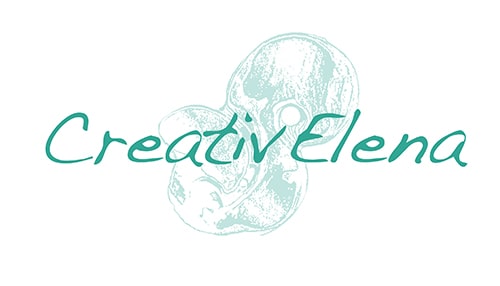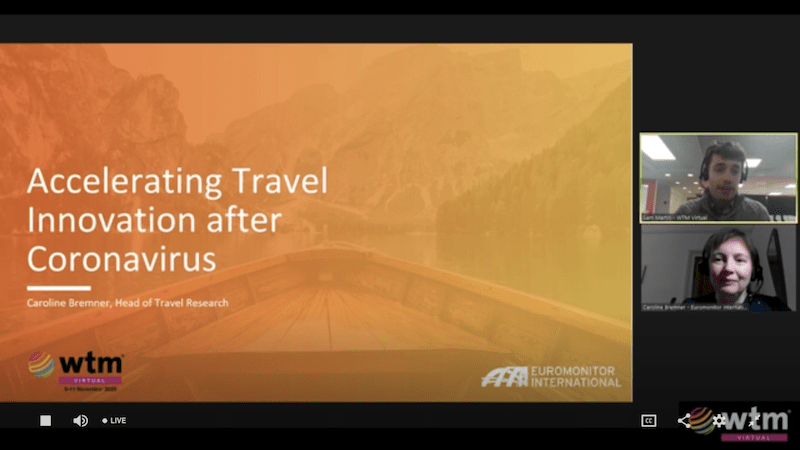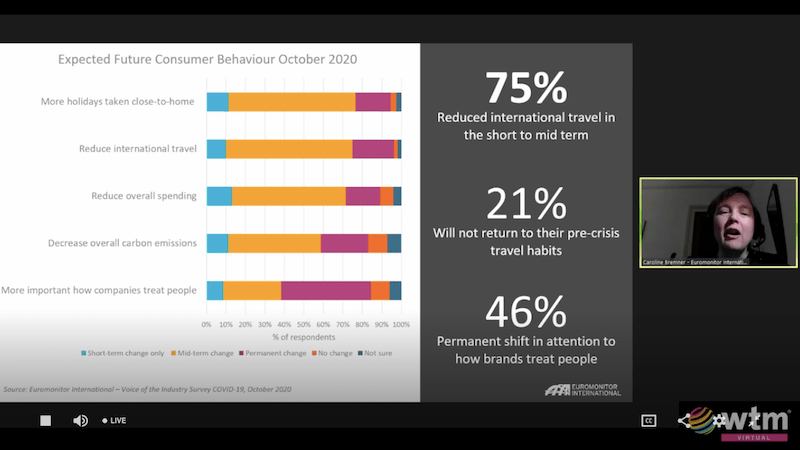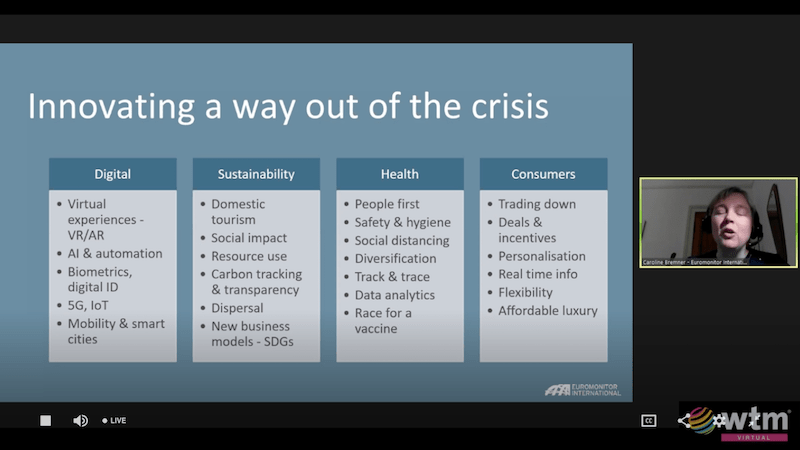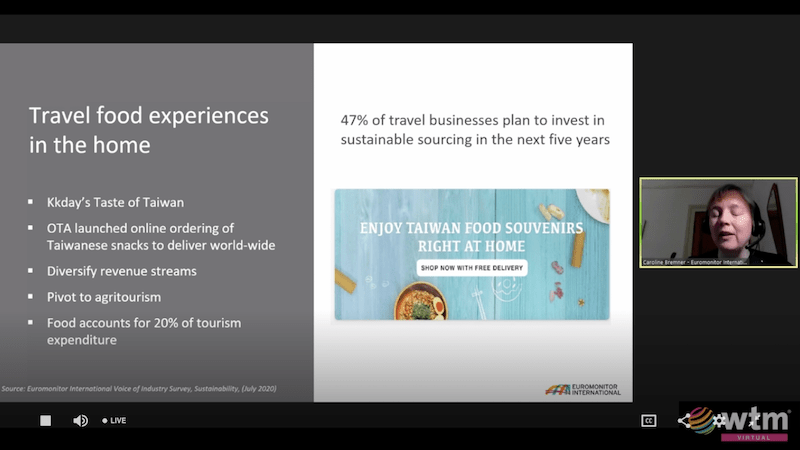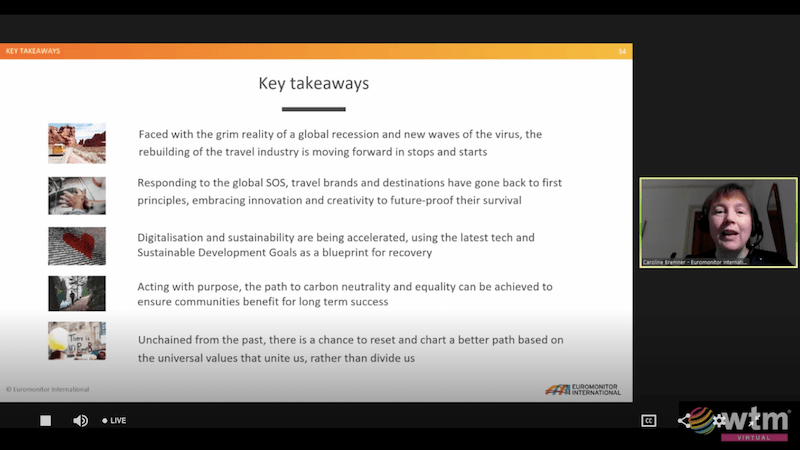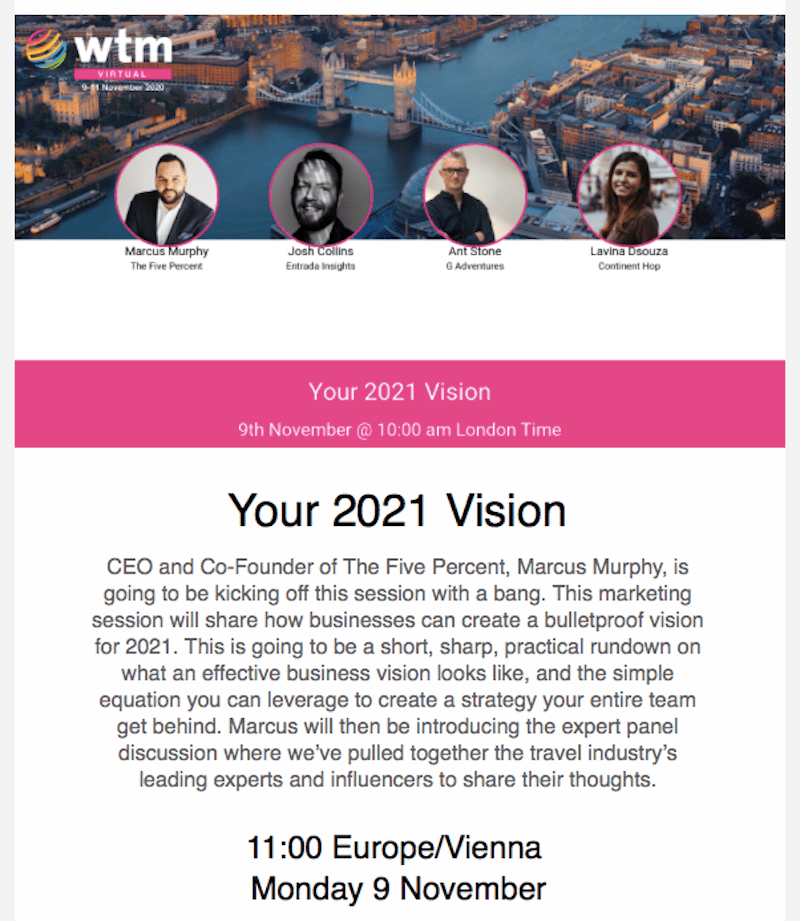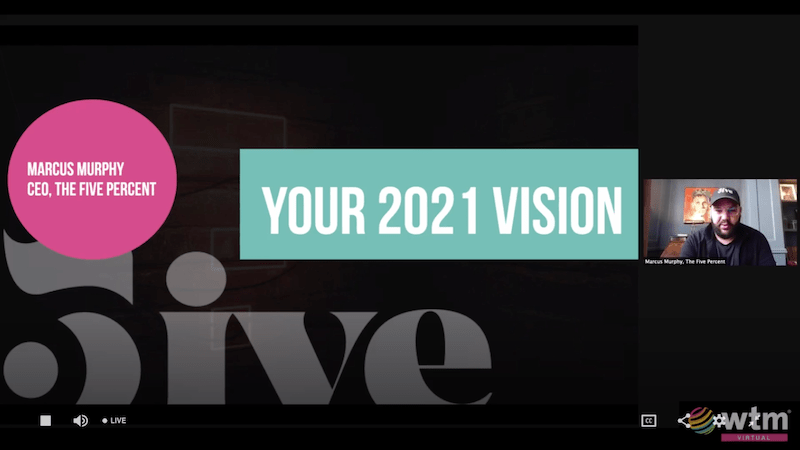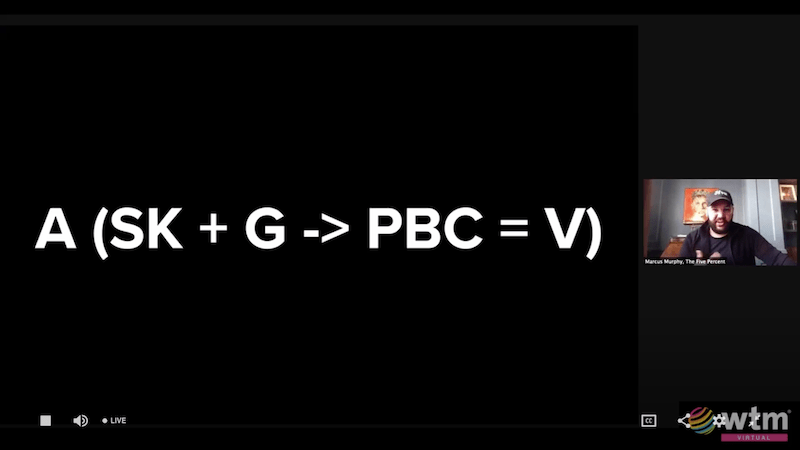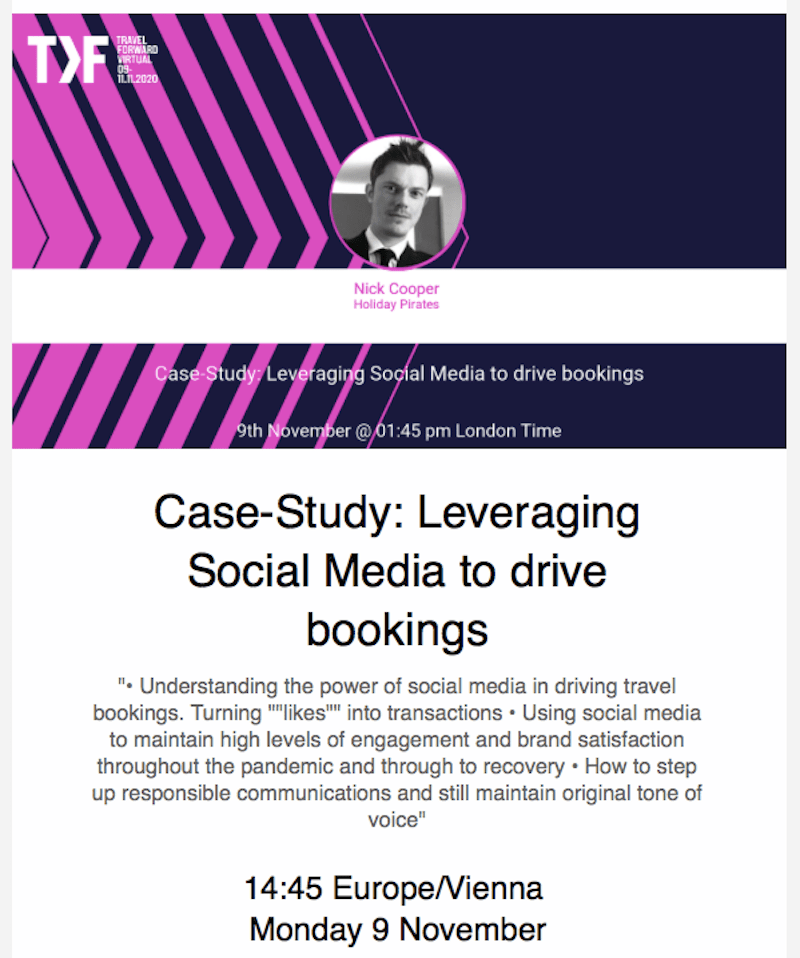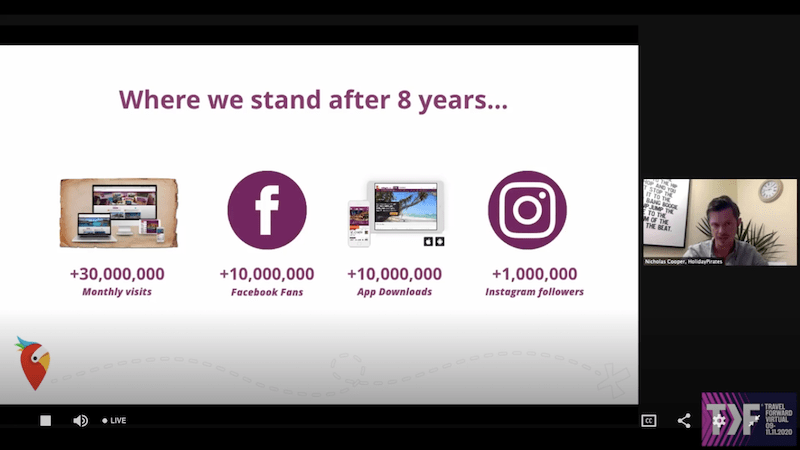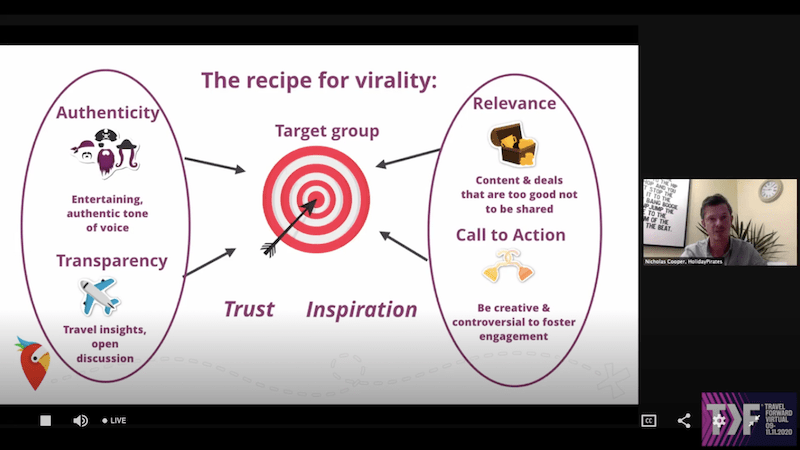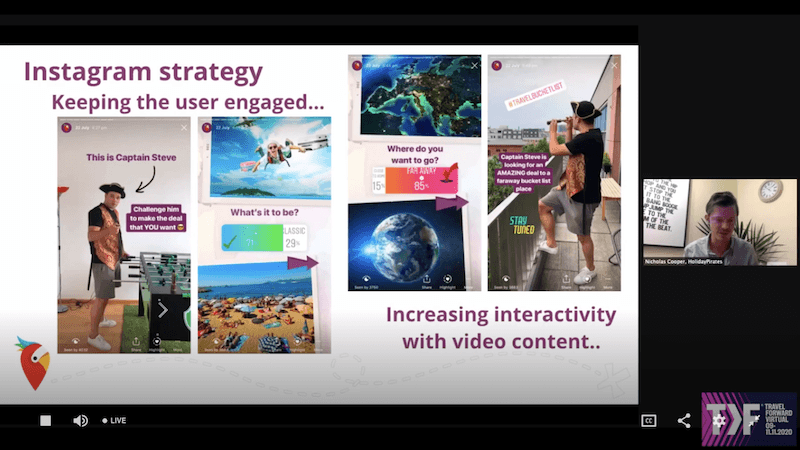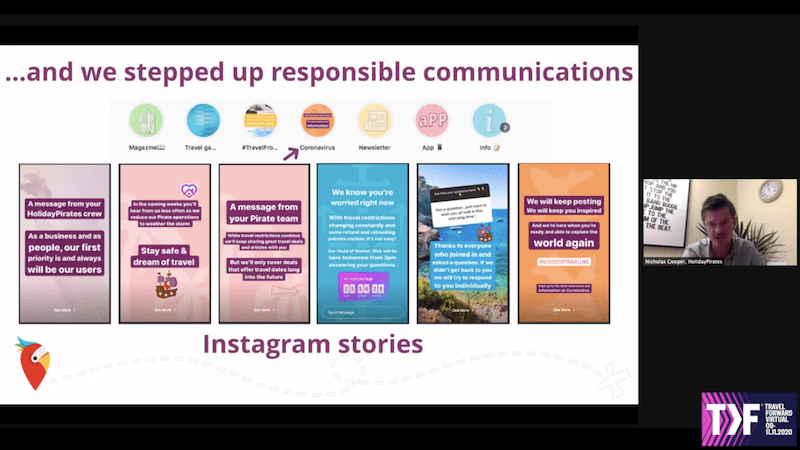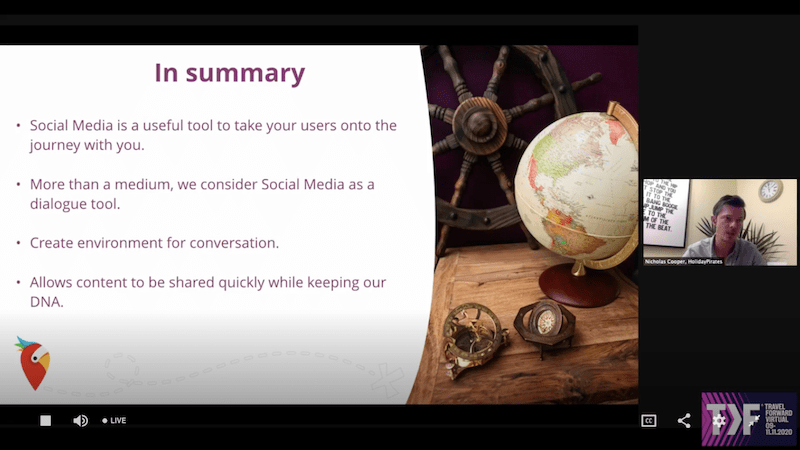Imagine London World Travel Market is happening, traditionally the second-largest travel trade show in the whole wide world, and nobody is going. It so happened in 2020, the year that forever has changed the way we look at travel, as well as many other areas in life. Sitting in front of my computer at home, I am likely joined by thousands of other digital attendees in an attempt to still connect after so many meetings and events have been cancelled this year. It certainly is not the same (I badly miss meeting all my national and international travel peers in person) but it does have its advantages, for instance as a working mum (I can easily hand over Liam to my mum while I keep watching the screen from the comfort of my parents’ home).
Anyway. Let’s talk travel business, shall we? Or at least try to.
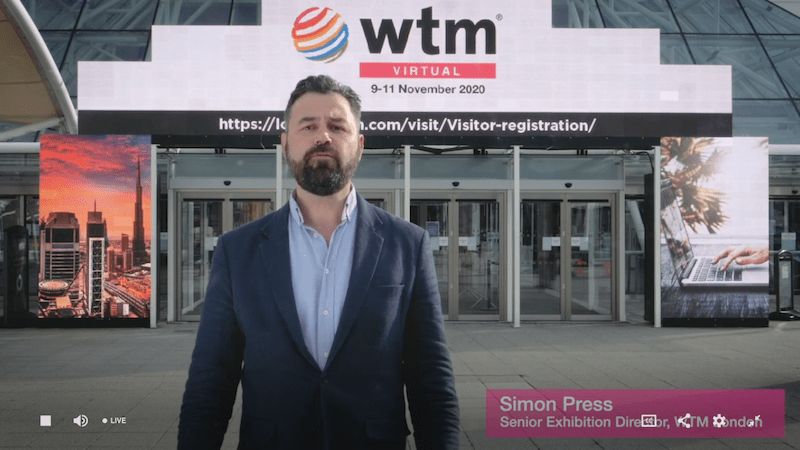
Simon Press, Senior Exhibition Director, kicks off the digital edition of London World Travel Market in front of an actual, empty ExCel London fairground. For the past few years, I have only ever seen the entrance area to the travel trade show teeming with people going back and forth about their travel businesses.
The first virtual conference session, quite fittingly for this year: “Accelerating Travel Innovation after Coronavirus”.
Caroline Bremner, Head of Travel Research at EuroMonitor International, talks to us about the “seismic impact” that the Coronavirus pandemic has had on the global travel industry, resulting in a drop of almost 60% in global arrivals. There has never been a similar level of decline before, she calls it “ten times worse than previous crises, such as the global financial crisis about ten years ago”.
At the same time, Caroline speaks of noticing a shift to mobile / online travel. In the “World Forecast Travel Sales Index” she presents, less than half of all businesses provide a travel app, yet this is likely to be where recovery comes from quickest.
So what about travel behaviour, even if a vaccine will be made available early in or at some stage throughout 2021? Caroline’s answer based on her study is that one out of five people will not return to their previous travel behaviour. As there may be a permanent shift away from international travel, opportunities for domestic travel continue to be on the rise. The big uncertainty, however, continues to be reduced consumer spending. What is more certain is that travellers after the Coronavirus pandemic will be much more concerned about sustainability, health issues, cost of travel and brand reassurance. Businesses must continue to focus on innovation as well as on making sustainable product decisions, Caroline assures.
Regarding travel innovation, Caroline then presents us with different examples from around the globe. The first few sentences on the situation in Europe sound very gloomy, however: “Europe is set to face its darkest hour and a potential second wave of the pandemic during the winter of 2020/2021. Domestic tourism has been the buffer to help protect the overall travel industry, and also to help with economic recovery. We have noticed a 25% decline in domestic travel expenditure, compared to 55% internationally. The baseline expectation is that of a recovery period of four to five years for Europe, with the UK being hit very hard as colliding with Brexit.”
Phew. Gloomy prospects indeed. So how to recover and build back better? One answer that Caroline Bremner has is “to embrace regenerative and transformational tourism”, as indicated by her mention of the “Transformational Travel Council” (you can find out more here: https://www.transformational.travel). Demand for nature-based activities, as well as those with a sound sustainable product base, are set to increase as well. In the same way, my personal opinion is that creative travel, too, will likely meet a greater opportunity in the future (check out all my publications concerning creative travel here: www.creativelena.com/en/travel-blog/creative-travel.
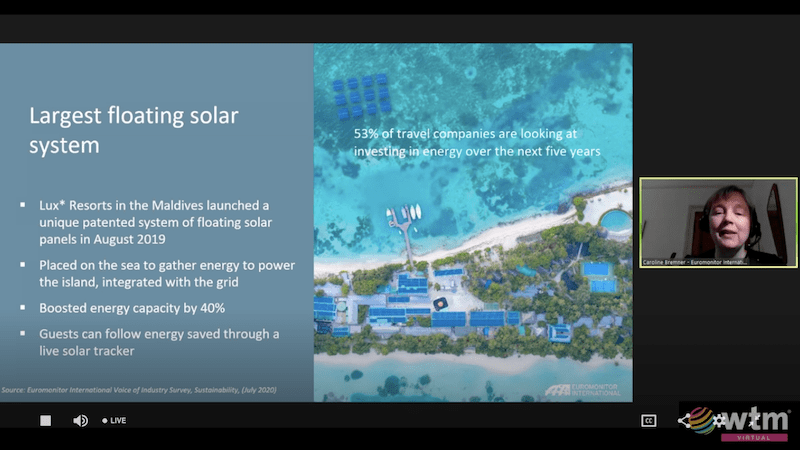
I like this innovative example of learning about the Maldives’ floating solar system so as to provide energy to the island.
Concluding, Caroline Bremner mentions that “from the research we see, travel businesses and destinations have responeded to the global SOS by embracing creativity and innovation. Key tools in this process are digitalisation and sustainability, and it is good to see that brands are increasingly acting with purpose, adhering to the so-called triple bottom line where all stakeholders are involved – also the local community. Old business models, especially where overtourism was concerned, have no longer been working anyway. There is a need to move forward based on universal values.”
Thank you, Caroline Bremner, for such an interesting and concise travel report on the many changes 2020 has brought to us!
Next up, a panel of travel experts talks “Your 2021 vision”.
Marcus Murphy, CEO of “The Five Percent”, elaborates on the importance of a vision for doing business in 2021.
Not only did Marcus Murphy kick off his session with a bang, but delivered “bang after bang” in his sharp 20-minutes-speech. I’ll do my best here to wrap up just what he said, as I do believe his words to be interesting not just in the context of the current travel crisis we are facing.
Bang #1, so to speak, was him saying, “I cut hair to pay for university! I had no idea of cutting hair, but I had bills to pay. So I put up a sign outside my room, and gradually, people came by to have their hair cut. Right now, we are all facing the same kind of situation. All of us are sliding into things we don’t know how to do, but now kinda have to do.”
Bang #2 was him elaborating on a picture of a building site featuring a massive skyscraper. “When you build a major skyscraper, you have to build down as deep as you have to build up for it not to falter. Professional builders spend more time building the foundation than the actual building structure. Think about that for a moment in terms of your vision, of where you want to go, and understand the need for preparation time. It takes time to build the bedrock foundation of what it is that you are trying to achieve. Clever people have always understood that, and no star really lights up overnight. It’s the years and years of hard work and preparation that do it. So when you think about your vision during this time of crisis, now is the time to go to the bedrock, to pause, to dig down deep and to plan. Ask yourself: Will what you plan right now be deep enough to support your vision?”
Here is a “formula for achieving vision” Marcus presents us with:
We start reading it from right to left, “just for the mathematical fun of it”, Marcus explains laughing. “V, of course, equals Vision. To establish a concrete vision, however, can be a tricky business. A good vision needs to be crystal clear. The best measurement of having a great vision is when people turn down other opportunities in order to be with you, your team, your company, your message. You just have to know where you are going, and I recommend you shut down all the noise around you in order to pursue formulating it”, Marcus explains.
Next in the “equation” is PBC, equalling “Positive Behavioural Change“. He mentions athletes as people with very strong visions and PBC: “They will do the hard things, because it is crystal clear to them what they need to do or change in terms of their behaviour. PBC is a great measurement of how serious you are about your vision.”
G, then, stands for Goals. Marcus explains that “we are the worst goal setters on the planet. What we do, is make proclamations instead. Take New Year’s Resolutions: Gym memberships spike in January, then dissipate in February. That’s because people are ultimately not serious about it. Goals have to be measurable in order to work, like, ‘here are the hard things that I am going to do, and this is exactly what I will do to achieve them’. My Daily Big 3 … My Weekly Big 3 … etc. Try not to make just proclamations in 2021!”
SK, then, equals “Skills and Knowledge“. People who are serious about their vision are equally serious about chasing down the tools necessary to make their vision work. Some of these tools could be to slow down, to learn from other people, to spend time with practitioners. Or to read! And to turn down different opportunities in favour of the right ones.
Last but not least, A is what makes it all work, representing “Action“. Marcus concludes: “The most successful people in 2021 will be those with a great vision, those who set goals and make changes in their lives, reinforcing them with measurable pieces. So take it step by step, slow down long enough, envisage and prepare for what is coming your way. And do not hesitate to take action. Ultimately, it has to be about the action, and about you taking initiative.”
Silver Linings, Future Predictions, and “things that are actually working right now” in the travel industry.
- Reuse content, niche down, and care about empathic content creation: This point by Lavinia D’Sousa (find her on Instagram as @Continent.Hop) was reiterated in a later session by Nick Cooper, of HolidayPirates: Connecting with your community, your audience, your “tribe”, is so important. “Keep being you while making that connection”, Lavinia says. And: “Do not limit yourself to just looking for different Social Media platforms to connect with – maybe it is books or causes that will have your community gather behind you. Just ensure that your message is right. For all I know, there are now even ‘Plantfluencers’ who will tell you how to best care for your plants! Niche down, and stand out. Campaigns are still happening. Make use of those long-term connections and offer to recycle or reuse the existing (travel) content you have.” (Note: The first destination I have observed to do so with their team of international content creators after the initial lockdown ended in the spring of 2020 is the city of Graz in the south of Austria).
- Trust in data as a basis for decision-making: Ant Stone, of G Adventures, continues to emphasise how important it is to have a clear vision as well as clear business and marketing goals. Thanks to G Adventures’ use of data, the global travel company has been able to “pivot very very fast into new areas of product development. Our research has shown that people still wanted to travel, and just needed information and reassurance as to how they could”, Ant explains. “Our ‘Book Your Bubble’ short-haul Europe travel options grew really fast during the past few months, with our Europe Products Division working very hard to achieve their goals. In that sense, we have seen some fantastic developments to bite through the pandemic: Technology, innovation, sense of community, to name but a few. What made all the difference was that we stopped to listen to our customers, and used our data insights as the foundation for business decisions and actions.”
- Human connections and feedback loops: Josh Collins, of US-based Entrada Insights market research company, explains that “the risk of disconnection in the travel industry was acute. We therefore conducted weekly webinars with the DMOs we work with – over 5000 in six months! – trying to stay as connected as possible and overcome the education gap in our industry.” It has, he believes, never been more important to understand what we still need to learn. While the travel industry has grown a lot in just a decade, now is the time to consolidate, to think holistically, and to keep having those feedback loops: “It takes an emotionally intelligent leader to go beyond the upward curves of the past decade and focus on areas that weren’t actually going so well. Now, with the pandemic causing us all to halt in our tracks, has come a time to really talk and engage with our local communities, to simply be in touch with each other over that faster, better, stronger motto.”
“Perhaps the better answer is not to go back to where we were in early 2020, but instead to focus on building a better tomorrow.” (Josh Collins, WTM Virtual, 2020)
Last but not least, I wish to bring another important session from this year’s digital World Travel Market to your attention. It is called:
Leveraging Social Media to drive bookings.
Nick Cooper, of Holiday Pirates, explains the growth of his “travel deals inspiration business” over the past eight years, which happened mainly through social media. Their basic business idea is to gather deals from all types of industries – cruise lines, airlines, tourism boards … – and publish them through their HolidayPirates channels. The main difference to other competitors is that almost all of it is done via social media. How are they, then, able to compete with giants such as Booking.com?
The answer, Nick explains, is that “we as a company act as a real person would online. 97% of traffic on our sites is organic! We have found a real edge with our global community of travellers. And personally, I believe that social media is not a top down medium, where you tell your customers ‘buy this, look at this’. Rather, you have to be part of a community, and gather a community behind you. Our real formula for success then, is having a recipe for vitality with our content. It is good to share something, but even better to have your ‘brand ambassadors’ share something about you. In our case, our community shares content and deals on our behalf because they are too good not to be shared. That is exactly where you want to go with the idea of leveraging social media for driving business.”
Nick explains HolidayPirates’ “recipe for virality” on social media as in following these simple steps:
- Have an entertaining, authentic tone of voice.
- Talk like a real person would.
- Joke around. Be real, transparent, honest, and open.
- Be relevant and refreshing at the same time. Inspire things that your community would not otherwise have thought of doing.
- With relevance comes a sense of immediacy: Capitalise on that call-to-action, make sure people can find the actual travel deal you are promoting so they may enquire about or book it.
A 2020 example of applying these steps even or especially in the context of the current crisis is the fact that just a few weeks ago, the Canary Islands opened up “a travel corridor for UK residents” without having to quarantine on return. Within just a few hours of that announcement, Nick explains, HolidayPirates were able to gather bookable deals for their community. They thereby demonstrated that they were in touch with real life events their community cared about, almost like a friend would. Besides, he mentions that during the crisis HolidayPirates also used, and continues to use, a lot of non-deal content too, so as to engender a sense of community: “Holiday vows, for instance, or list posts and any kind of helpful posts have also worked really well”, he concludes.
Thank you, Nick, for a really insightful summary of how to use social media effectively – especially in times like these!
An opportunity to book one on one meetings through WTM Virtual.
Concluding, I wish to spend a moment to thank the WTM Virtual team for their efforts in bringing this conference, including all technical nuts and bolts, up to speed with current concerns in the bigger travel world out there.
Personally, I have benefitted a lot not just from writing up and sharing the aforementioned points, but simply from the fact that I was once more in touch with my global community of inspirational leaders, who clearly demonstrated that NOT ALL IS LOST. That sense of togetherness, and global travel spirit community, was priceless to me just now, in a time where entrepreneurial wings are cut much too quick and much too often. Thank you for that signal alone, and for highlighting what continues to work, even thrive, just now.
And yes, it was heart-warming and charming to have speed-dating opportunities beyond the actual conference sessions, such as the one I’ve had with Helga Cruz from the Algarve Tourism Destination office in Portugal. Clearly, we will be in touch for future travel opportunities, as our one on one conversation has shown.
Are there any open points you wish to address, or do you have any questions left? Feel free to leave me a comment here so as to continue the discussion on the road to travel recovery!
